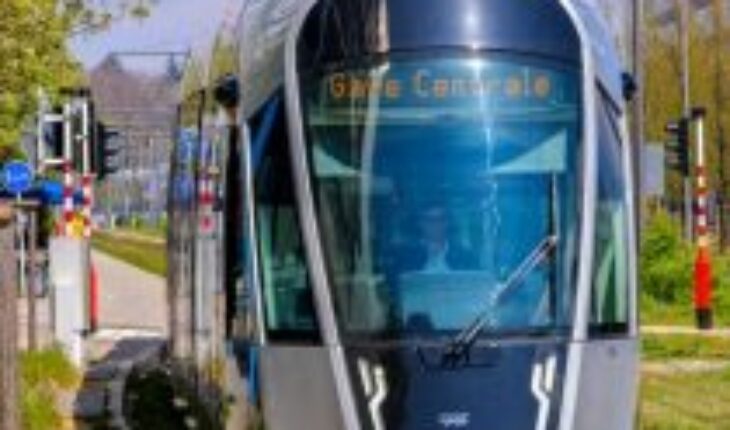For years, there have been experts and politicians who have been committed to making changes in the citizen mobility system, and today even more, because of the war in Ukraine and to reduce energy dependence on Russia. The idea is for citizens to save energy by moving.
Due to the increase in energy prices, the German Parliament decided, among other things, to introduce a “monthly ticket of 9 euros”, from June to September 2022, to boost public transport and reduce citizens’ spending. Other countries in the European Union already have experience with this type of measure.
Luxembourg
Since March 1, 2020, “Luxembourg is the first country in the world where mobility is free,” the Luxembourg government announced on its website. And in that country, mobilizing is also free for foreigners: 45 percent of the country’s workers come from other countries, and regularly move to Luxembourg.
For luxembourg’s Minister of Transport, François Bausch, free public transport is an important social measure. The government wants to turn the country into a “mobility laboratory,” whose population has increased by 40 percent in 20 years. Free local public transportation is funded through taxpayer money.
Many people will be able to travel by free public transport in Luxembourg.
Malta
Malta wants to introduce free public transport for all citizens from 1 October. This measure is not a response to the war in Ukraine. It had already been announced in October 2021. The aim is to reduce dependence on cars, Bertrand Borg, editor of the Times of Malta newspaper, told DW.
The project is funded by money raised from taxes. Tourists can travel without paying in the Maltese public media if they request the free ticket before arriving in the country.
Maltese and tourists will be able to go free by bus from October 2022.
Hasselt, in Belgium, backtracked
There are also cities and municipalities that have introduced the free ticket. The Belgian city of Hasselt enjoys an international reputation for public transport. Hasselt became known beyond its borders when it introduced free public transport in 1997.
Citizens were able to travel by bus and train for free until 2013. However, the city administration reversed the measure in 2013 because of the high costs.
The free ticket in Hasselt, Belgium, made this Belgian city famous.
Tallinn, Estonia
In Estonia’s capital, Tallinn, all registered residents in the city can use buses and trains for free since 2013. The city administration also decided to take that step because there were many users who could not afford tickets during the financial crisis. The project was subsidized with additional tax revenues.
According to Estonian journalist Evelyn Kaldoja, “people complain that travel is too sporadic, so the system is not very useful for people of working age.” In addition, she does not believe that the measure has reduced the number of cars on the roads. Buses and trains are now free not only in the capital, but also in most municipalities in the country.
Traveling by bus without paying is possible in Tallinn, Estonia.
Dunkirk, France
However, in another European city where free tickets were also introduced in 2018, traffic on the roads was reduced. It is in Dunkirk, in France. The official goal was then to “get people back on the buses.”
The city seems to have achieved its goal. According to a study carried out a few months after the introduction of free public transport, the project has led to a reduction in car journeys: half of the respondents said they now take the bus more regularly than before. About five percent even acknowledged selling their car or not buying another one for the free buses.
Danish Islands
For economic reasons, Denmark also introduced free local transport: it was possible to travel for free to some Danish islands.
Lina Holm-Jacobsen, press and marketing coordinator at VisitDenmark, told DW that this was part of the Danish government’s support programme to boost tourism after the coronavirus lockdowns. In the summers of 2020 and 2021, travel to the Danish islands was free for passengers ifn car. In 2022, however, the ferry is not free, but visitors to the islands can take advantage of the reduced rates of local transport.
Follow us on





